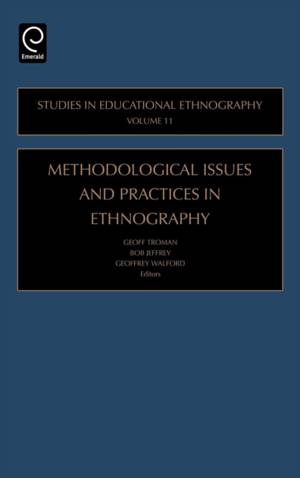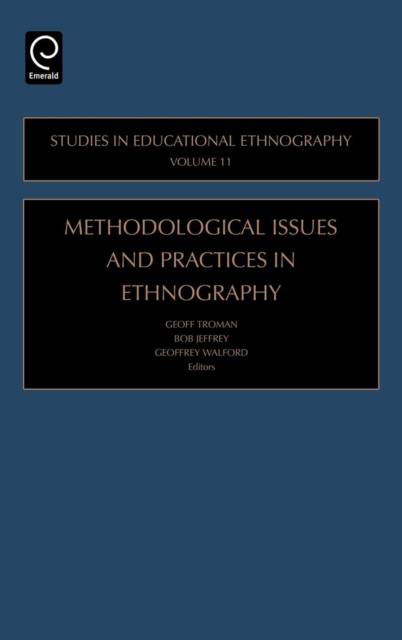
Bedankt voor het vertrouwen het afgelopen jaar! Om jou te bedanken bieden we GRATIS verzending (in België) aan op alles gedurende de hele maand januari.
- Afhalen na 1 uur in een winkel met voorraad
- In januari gratis thuislevering in België
- Ruim aanbod met 7 miljoen producten
Bedankt voor het vertrouwen het afgelopen jaar! Om jou te bedanken bieden we GRATIS verzending (in België) aan op alles gedurende de hele maand januari.
- Afhalen na 1 uur in een winkel met voorraad
- In januari gratis thuislevering in België
- Ruim aanbod met 7 miljoen producten
Zoeken
Methodological Issues and Practices in Ethnography
€ 241,95
+ 483 punten
Omschrijving
What counts as ethnography and what counts as good ethnography are both highly contested. This volume brings together chapters presenting a diversity of views on some of the current issues and practices in ethnographic methodology. It does not try to present a single coherent view but, through its heterogeneity, illustrates the strengths and impact of the debate. The collection includes chapters on the ethnographic research process; the use of photographic diaries; the idea of toleration in the research process; and the personal aspects of research. It has chapters that question generalisation; perceive ethnography as a potential form of surveillance; analyse the notion of display in ethnography; critique the way culture is commonly theorised; and examine the possibilities of comparative ethnographic work. It also includes and exchange of views between Martyn Hammersley and Barbara Korth on partisan research.
Specificaties
Betrokkenen
- Uitgeverij:
Inhoud
- Aantal bladzijden:
- 248
- Taal:
- Engels
- Reeks:
- Reeksnummer:
- nr. 11
Eigenschappen
- Productcode (EAN):
- 9780762312528
- Verschijningsdatum:
- 20/10/2005
- Uitvoering:
- Hardcover
- Formaat:
- Genaaid
- Afmetingen:
- 164 mm x 236 mm
- Gewicht:
- 512 g

Alleen bij Standaard Boekhandel
+ 483 punten op je klantenkaart van Standaard Boekhandel
Beoordelingen
We publiceren alleen reviews die voldoen aan de voorwaarden voor reviews. Bekijk onze voorwaarden voor reviews.








